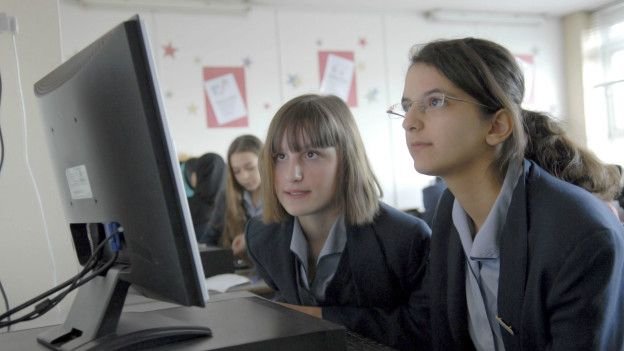STEEMITEDUCATION; Is technology an advantage or a disadvantage in learning?
Computer technologies have revolutionized almost every aspect of our life and work.
 source
sourceStudents who can not navigate through a complex digital landscape will no longer be able to participate fully in the economic, social and cultural life that surrounds us.
But those responsible for the education of the "TECHNOLOGICAL" students of today also face their own problems.
Effectively, from information overload to plagiarism, through the need to protect children from online risks, such as fraud, privacy violations or online bullying, to establish a diet of appropriate and appropriate means , the challenges are multiple.
We also hope that schools educate our children to be critical consumers of Internet services and electronic media. And we also trust that they will raise awareness about the risks children face when they are online and how to avoid them.
But now, for the first time, assessments offer a comparative international analysis of the digital skills students have acquired and the learning environments designed to develop these skills.
And these data show that the reality in schools goes considerably behind the promises offered by technology.
In 2012, 96% of 15-year-old students in the OECD countries (Organization for Cooperation and Development) reported having a computer at home, but only 72% said they used a desktop computer at school, Laptop or tablet.
And in some countries less than one in two students reported doing so.
Sometimes the technology is disappointing
On the other hand, even in cases where computers are used in the classroom, their impact on students' academic performance is not the best.
Students who use computers moderately at school tend to have somewhat better learning outcomes than students who use computers on rare occasions.
But students who use computers very often at school get substantially worse results on most learning outcomes, even after taking into account differences in thoughts and demographic variables.
The results also show no appreciable improvement in reading, math or science achievement for students in countries that had invested heavily in information and communication technology for education.
In short, ensuring that every child reaches a basic level of proficiency in reading and mathematics seems to do more to create equal opportunities in the digital world than to expand or subsidize access to high-tech devices and services.
One interpretation of these results is that the construction of deep conceptual understanding requires intense interactions between teacher and student, and technology sometimes distracts from this valuable human contact.
Not knowing how to take advantage of technology
Another interpretation is that schools have not yet become good enough at the kind of pedagogies that make the most of technology, realizing that adding 21st century technologies to the teaching practices of the 20th century only dilutes the effectiveness of teaching.
If students use smartphones to copy and paste prefabricated answers to questions, that is unlikely to help them become smarter.
Educators who want to make sure that students become smarter than a "smartphone" need to think more about the pedagogies they are using to teach them.
Technology can amplify quality teaching, but it seems that it can not fix poor teaching.
The impact of technology on the provision of education is still less than optimal, because we may be overestimating the digital competences of teachers and students, due to design strategies and implementation of naive policies, because of a poor understanding of pedagogy , or due to the generally poor quality of educational and didactic software.
The results suggest that connections between students, computers and learning are neither simple nor fixed; and that the real contributions that ICT can make to teaching and learning have not yet been fully realized or exploited.
But these findings should not lead to despair. School systems need to understand the digital agenda well to provide educators with learning environments that support the pedagogies of the 21st century and provide children with the 21st century skills they need to be successful in tomorrow's world.


